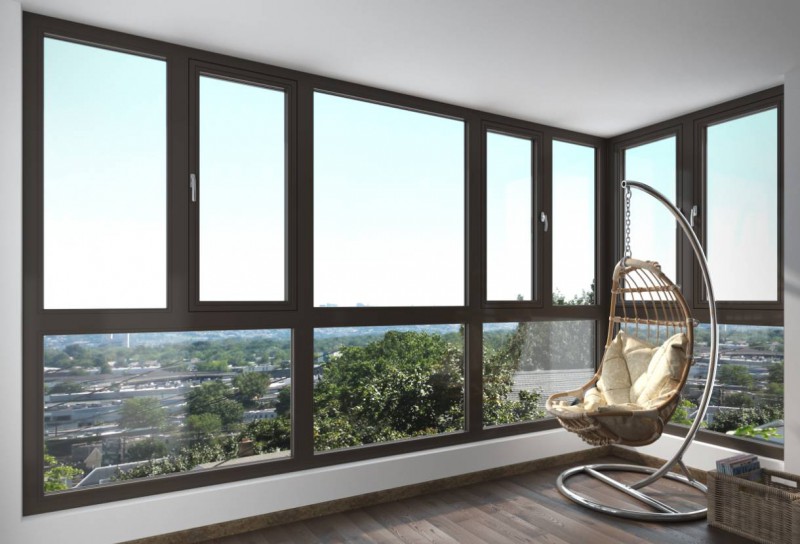What kind of aluminum is better for doors and windows
2024-07-02 Back
Common aluminum materials suitable for doors and windows include ordinary aluminum alloy, broken bridge aluminum alloy and anodized aluminum alloy, etc. They have their own characteristics.
The specific choice of aluminum material can be determined according to actual needs and budget.

Broken bridge aluminum alloy has good thermal insulation and heat preservation performance, and is suitable for places with energy-saving requirements. The principle is to connect the two aluminum
alloy profiles separated by thermal insulation strips, which not only retains the advantages of strong metal pressure resistance, but also makes up for the defects of poor metal thermal insulation performance.
Broken bridge aluminum alloy thermal insulation doors and windows are light in weight, high in strength, good watertightness and airtightness, good fire resistance, large lighting area, atmospheric corrosion
resistance, long service life, good decorative effect, and good environmental protection performance.
Ordinary aluminum alloy is relatively strong, has good sealing, is strong and durable, is relatively light in weight, and is relatively economical in price. However, the thermal insulation effect of ordinary aluminum
alloy is relatively poor, and it is not very good at blocking the influence of outdoor temperature. Its anti-aging and weather resistance are better than plastic steel doors and windows, and it can generally be used
for about 20 years.
Anodized aluminum alloy has good corrosion resistance and is suitable for use in humid environments.
When choosing aluminum, in addition to considering the type of material, you should also pay attention to the following points:
- Wall thickness of aluminum: Generally speaking, the thicker the wall, the higher the strength and stability of the aluminum. For example, the national standard stipulates that the wall thickness of the 60 and 65 series
of broken bridge aluminum profiles must be greater than or equal to 1.4mm, and the wall thickness of the 70 and 80 series of national standards must not be less than 1.8mm. However, the width and wall thickness
of the profile do not have a particularly significant impact on the sound insulation and heat insulation performance of doors and windows. The quality and thickness of insulating glass, door and window installation
process and other factors have a greater impact on it.
- Surface treatment of aluminum: The surface treatment method will affect the appearance and durability of aluminum. Common surface treatment methods include fluorocarbon spraying, powder spraying, anodizing,
electrophoresis, wood grain transfer, etc., which can be selected according to personal preferences and decoration style.
- Brand and quality: Choosing well-known brands and products with a good reputation usually has a better quality guarantee. You can understand the manufacturer's production process, quality control and other aspects.
In addition, there are some good quality aluminum alloy brands available on the market, such as Xinhe Aluminum. If you have high requirements for the performance and appearance of doors and windows, you can consult
professional door and window sales staff or manufacturers to get more specific advice and guidance. At the same time, make sure that the production and installation of doors and windows are carried out by professionals
to ensure their quality and use effect.




